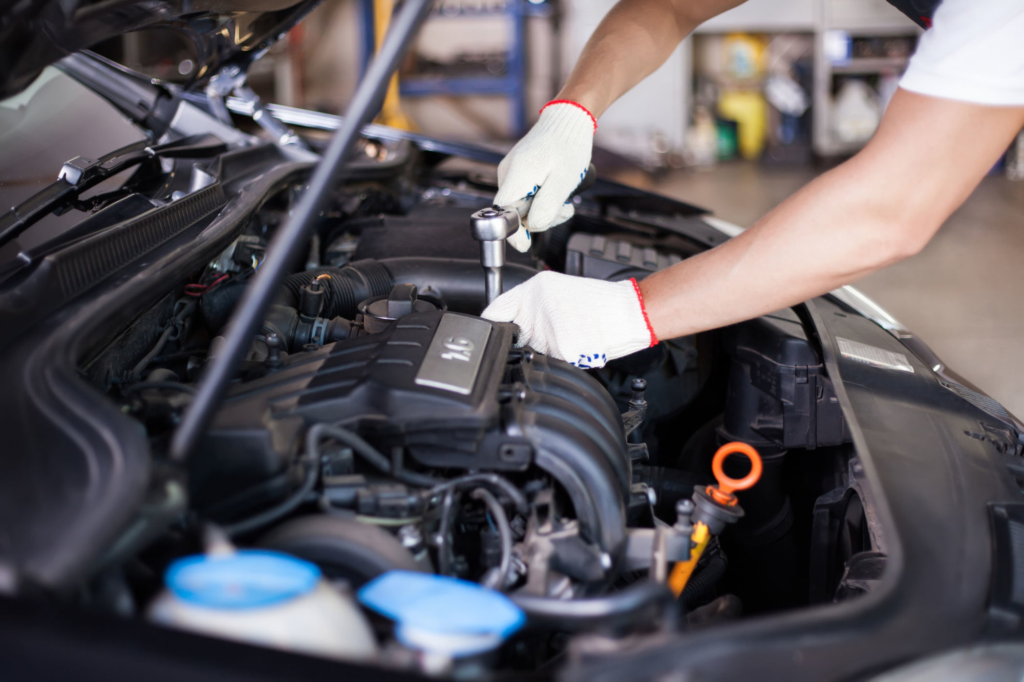When it comes to car maintenance, one of the most significant concerns for vehicle owners is engine repair costs. The engine is the heart of your vehicle, and when it has problems, it can lead to unexpected expenses. Understanding the factors that influence engine repair costs can help you make informed decisions and avoid financial surprises. In this blog, we’ll break down everything you need to know about engine repair costs in a simple and easy-to-understand way.
Understanding Engine Repairs
Before diving into the costs, let’s understand what engine repairs typically involve. Your car’s engine consists of many parts, all working together to keep your vehicle running smoothly. Here are some common types of engine repairs:
Common Engine Problems
- Oil Leaks: Over time, engine seals and gaskets can wear out, leading to oil leaks. If left unchecked, this can cause severe engine damage.
- Overheating: If your engine gets too hot, it can lead to catastrophic failure. Common causes include a broken water pump, low coolant levels, or a faulty thermostat.
- Engine Misfires: This occurs when one or more of your engine’s cylinders are not firing correctly. It can be caused by issues like faulty spark plugs or fuel injectors.
- Timing Belt Issues: The timing belt helps keep your engine’s components in sync. If it breaks, it can lead to severe engine damage.
Note – If you’re experiencing engine problems or just want to ensure your vehicle is in top condition, don’t wait until it’s too late! Trust the experts at Yallafix Auto for reliable Car Engine Repair & Services in Dubai. Our experienced technicians are here to help you with all your engine repair needs, ensuring your vehicle runs smoothly and efficiently. Contact us today for a free consultation or to schedule your service appointment! Your car deserves the best care—let Yallafix Auto take care of it!
The Importance of Timely Repairs
Addressing engine issues as soon as they arise can save you a lot of money. Delaying repairs can lead to more extensive damage, requiring more costly repairs. It’s essential to pay attention to your vehicle’s performance and address any unusual noises or warning lights.
Factors Affecting Engine Repair Costs

Several factors can influence how much you’ll spend on engine repairs. Understanding these can help you prepare for potential costs.
Type of Repair Needed
The type of repair plays a significant role in the overall cost. Minor repairs, like replacing spark plugs, can be relatively inexpensive, while major repairs, such as a complete engine rebuild, can cost thousands of dollars.
Examples of Repair Costs
- Oil Leak Repair: $150 – $1,000 depending on the severity.
- Engine Overhaul: $2,500 – $4,000 for a complete rebuild.
- Timing Belt Replacement: $500 – $1,000.
Labor Costs
Labor costs vary depending on the shop’s location, reputation, and the complexity of the repair. In general, you can expect to pay between $75 and $150 per hour for labor. If a repair requires a lot of time, the labor costs can quickly add up.
Parts Quality
The quality of the parts used in repairs also affects the overall cost. Original Equipment Manufacturer (OEM) parts are usually more expensive but can offer better reliability. Aftermarket parts can be cheaper but may not always match the quality of OEM parts. Choosing the right parts can significantly impact the longevity of your repairs.
Average Engine Repair Costs
Now that we’ve covered the factors affecting engine repair costs, let’s look at some average costs for common repairs.
Common Engine Repair Costs
- Spark Plug Replacement: $100 – $300
- Water Pump Replacement: $300 – $750
- Fuel Injector Replacement: $300 – $1,500
- Head Gasket Replacement: $1,000 – $2,000
- Complete Engine Replacement: $3,000 – $7,000
Factors Influencing Regional Costs
Keep in mind that repair costs can vary by region. Areas with a higher cost of living generally have higher labor rates. It’s a good idea to shop around and get quotes from multiple repair shops.
How to Save on Engine Repair Costs
While engine repairs can be costly, there are ways to save money and reduce expenses.
Regular Maintenance
One of the best ways to avoid costly repairs is through regular maintenance. Simple tasks, such as oil changes, fluid checks, and filter replacements, can keep your engine running smoothly.
Listen to Your Car
Pay attention to your car’s sounds and behavior. If you hear strange noises or notice a decrease in performance, don’t ignore these signs. Early detection can lead to less expensive repairs.
Shop Around for Quotes
Before committing to repairs, get quotes from multiple mechanics. This gives you a better idea of the average cost and helps you avoid overpaying.
Consider DIY Repairs
If you’re handy with tools, some minor repairs can be done yourself. Tasks like changing oil or replacing air filters can save you labor costs. However, be cautious and only tackle repairs you are confident about.
Conclusion
Understanding engine repair costs is crucial for every vehicle owner. By knowing the common problems, factors influencing costs, and how to save on repairs, you can better manage your car’s maintenance. Regular maintenance and prompt attention to issues can help you avoid significant expenses and keep your vehicle running smoothly for years to come.
In summary, whether you’re facing minor repairs or major engine issues, being informed is your best tool. Stay proactive about your vehicle’s health, and you’ll be better prepared for any repairs that come your way. Your car is an important investment, and taking care of it will pay off in the long run.
For more insightful articles related to this topic, feel free to visit blogwritting.com

